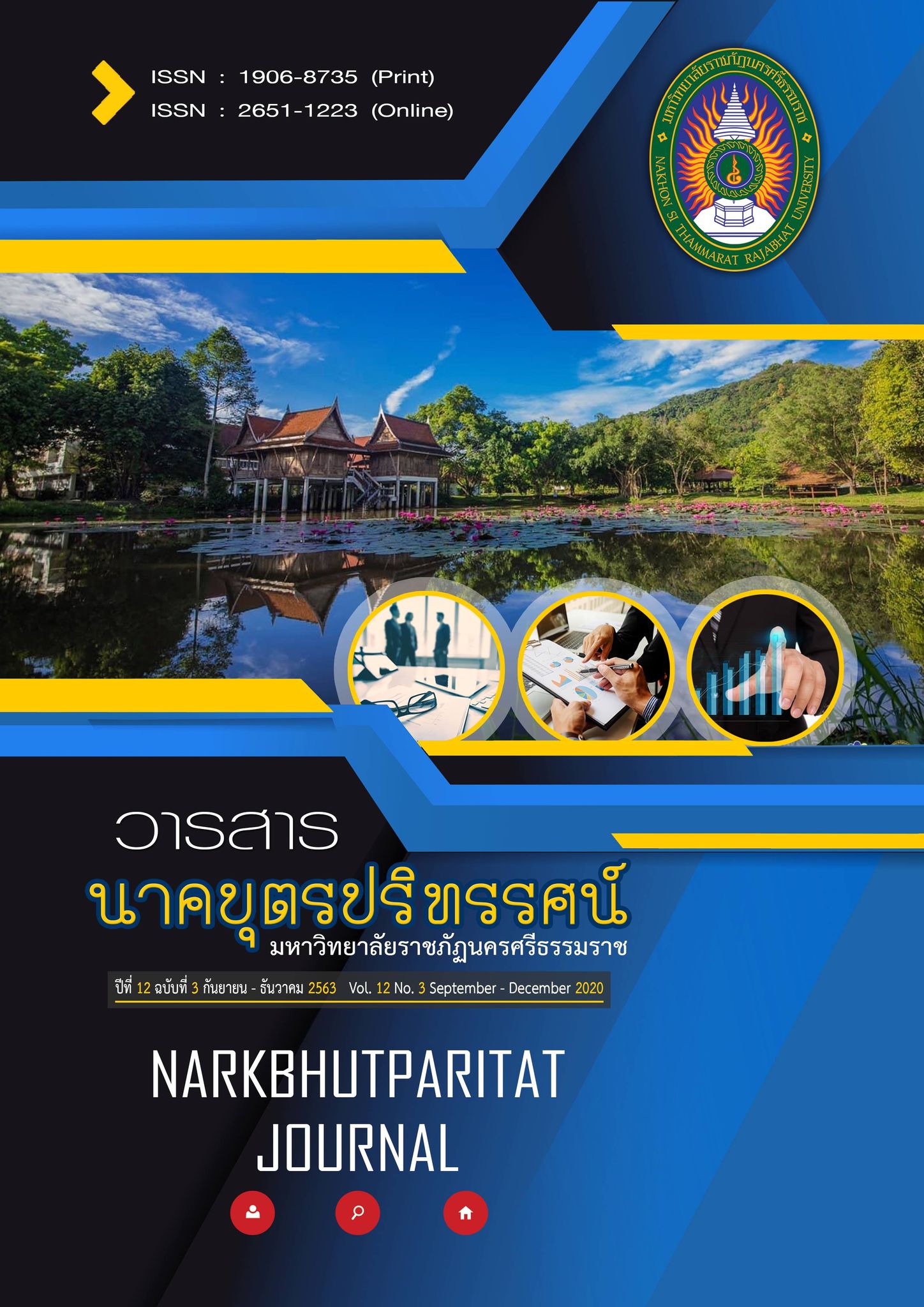Guidelines for Managing Social Capital in Chiang Rai Special Economic Zone by Active Aging.
Main Article Content
บทคัดย่อ
The objectives of this research was to find the ways to manage social capital for preparing elderly people in Chiangrai, Special Economic Zone. This qualitative research used Rapid Rural Appraisal and Participatory Action Research, then analyzed with the components of the 6 Active Aging conditions corresponding to the context of the study area which can be used as a base for empowerment of the elderly and seek the guideline for management by stakeholders.
The research found that social capital in the study area consisted of Handicraft, Giant catfish hunter, Local Food, Arts and Culture, Health, Agriculture, Handicrafts and Artifacts, Local Literature, Environmental Management, Local style Tailoring, Religious Leaders, Volunteer and Organization and Sufficiency Economy. From the point of view of communities’, there are recommendations for social capital management in four main components as follows; “Man” which intelligence, development and adaptation, “Institutional” which supports the development networks, “Culture” and “Management” as indigenous knowledge for sustainable living.
Article Details
เอกสารอ้างอิง
Decharak, T., Chuonwan S., & Somboonying P. (2015). Elderly in Chinese society: Model Welfare Provision, Care and social activities. Bangkok: Thammasat University Press.
Direction of operation of Chiang Rai Special Economic Development Zone. Retrieved 2017, October 5, from http://www.dopachiangrai. com/direction.
Eknon, Y. (2018). Social Capital. Retrieved 2017, October 3, from https: //communitycenter padat.wordpress.com/2009/05/23/Social Capital.
Kongmaha, H., Hansoongneon, K., Runkawat, V., & Kongmaha,. P. (2018). The development of a model for promoting vitality in the elderly in Mueang District, Nakhon Ratchasima Province. Journal of Nakhon Phanom University, 6(1), 54-62. (in Thai).
Kongsuwan, D. (2018). Social Capital Management in Chiang Khong District Chiang Rai province And Huay Sai city, Bo Kaeo province, Laos PDR to prepare for the aging society. (Funding source: The National Research Council of Thailand)
Nuekkrathok, P. (2014). Social Capital and Knowledge Management for self-sustainable community organization in Lower-Northeastern Thailand. Dissertation, Department of Public Administration, Graduate School, Mahachulalongkornrajavidyalaya University.
Office of Social Development and Quality of Life. (2005). Social capital of the public version. Bangkok: 21 Century. Suchin Simarak and Sukaseini Suphathira. Urgent Assessment of Rural Conditions. Khon Kaen: Farming System Research Project Khon Kaen University, 1987.
Open a Specific Area Plan Special Economic Development Zone "Chiang Rai", border-trading- investment-tourism-related Mekong River Basin Economic Base Newspaper. Retrieved 2017, December 2, from http://www.thansettakij.com/ content/22038.
Pongsapich, A. (2000). Social Capital in an Economic Crisis in Thai Society. Journal of Social Research, 23(1), 34-50.
Romerattanaphan, W. (2005). Social Capital. Bangkok: Duan Thula Press.
Sawasee, P. (2016). Museum as a therapy area for the elderly In the case of England. Retrieved 2019, September 9, from http://www.sac.or.th/databases/museum database/bloginside.
Thanakwang, K., Isaramalai, SA., & Hatthakit U. (2014). Development and psychometric testing of the active aging scale for Thai adults. Clin Interv Aging, 24(24), 11-21.
Trakulwaranon, P. (2011). Social capital and social process development to support the aging society (Social Processes for Thai Ageing Society). Bangkok: Faculty of Sociology and Anthropology. Thammasat University.
World Health Organization. (1999). ACTIVE AGEING: A POLICY FRAMEWORK. Retrieved 2018, October 3, from https: //ActiveAgeing_ok (who.int).
Asawathongkam, D. (Interview, June 26, 2018)
Khamsom, P. (Interview, June 26, 2018)
Kurupratchayamak, P. (Interview, June 26, 2018)
Roi-Kaew, N. (Interview, June 26, 2018)
Wimonwan, S. (Interview, June 26, 2018)
Urai, S. (Interview, June 26, 2018)


